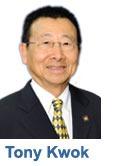State Councilor and Foreign Minister Wang Yi’s tour of Southeast Asia included an official visit to the Philippines. This came just after Ferdinand “Bongbong” Marcos Jr, the 64-year-old son of the late Philippine president Ferdinand E. Marcos Sr, had been sworn in as the country’s 17th president on June 30.

In his inauguration speech, Marcos promised that he will lead his government in developing a “comprehensive, all-inclusive plan for economic transformation” and massive infrastructure building (the Build, Build, Build Program). He should be aware that the country’s procurement and infrastructure building have been the two areas of government most susceptible to corruption in the past.
Marcos would be wise to address the people’s concerns directly by pledging his personal commitment to fighting corruption and fully embracing good practices, setting the tone from the top. On that, Marcos can learn from China’s success in combating corruption after President Xi Jinping came into power in 2012 and introduced his tough stand on corruption at the 18th National Congress of the Communist Party of China.
Marcos would be wise to address the people’s concerns directly by pledging his personal commitment to fighting corruption and fully embracing good practices, setting the tone from the top
China’s anti-corruption campaign has secured popular support, and this is exactly what Marcos needs now. China’s tough measures in clamping down on corruption have won worldwide admiration. Marcos might have taken the opportunity to seek expert advice from Vice-President Wang Qishan, who had come to attend his inauguration ceremony, as Wang has played a leading role in China’s campaign against corruption.
ALSO READ: Philippines' Marcos vows to foster stronger ties with China
Actually, the Philippines already has a good anti-corruption institutional structure led by the Office of the Ombudsman, which is an independent body. The ombudsman is nominated by the president and has to be approved by the House of Representatives. Once appointed, he, or she, is truly independent and can be dismissed only through impeachment by the House. The office has authority to investigate and prosecute corrupt offenders.
In addition, there is an independent anti-corruption court set up with selected judges to deal solely with corruption trials. Over the years, the Philippines has developed good corruption-prevention systems, such as in public procurement law and public officers’ code of conduct, etc.
It should learn from China’s experience that the key to its success is the emphasis on strong enforcement so as to create an effective deterrence. This is where its anti-corruption regime is weakest. Although many corruption prevention systems are in place, they are not vigilantly enforced.
Its anti-corruption law, the Ombudsman Act of 1989, is antiquated and cannot meet the challenges of sophisticated corruption of today. The law does not provide to the officers of the ombudsman any power of arrest and detention, nor can investigators conduct covert surveillance, telephone intercepts and even check the bank accounts of suspects.
ALSO READ: China willing to deepen cooperation with Philippines
The law should be updated, taking into account that corruption crimes have become so much more sophisticated with the complex financial and banking services of today and the associated new information technology. They can take references from the law books of the Chinese mainland and the Hong Kong Special Administrative Region.
The Philippines can seek the assistance of China in providing enforcement and investigation training to the Office of the Ombudsman. In particular, they can learn from China in applying high-level data technology to analyze and uncover corrupt assets of public officials, under the Zero Trust Program.
Since the Commissioner of the Hong Kong Independent Commission Against Corruption is the president of the International Association of Anti-corruption Authorities, the Philippines can make the best use of its membership to seek training assistance from the ICAC.
International cooperation in fighting corruption is now regarded as an essential element in collaboration among nations, such as in mutual legal assistance, money-laundering investigations and corrupt-asset recovery. Marcos can leverage his new presidency to establish a good working relationship with China in anti-corruption co-operation, and can extend such cooperation to the economy, trade and infrastructure development.
READ MORE: China urges Philippines to respect its sovereignty over island
The author is an adjunct professor of HKU Space and an international anti-corruption consultant. He was formerly appointed as an honorary adviser of the Philippines’ Office of the Ombudsman.


